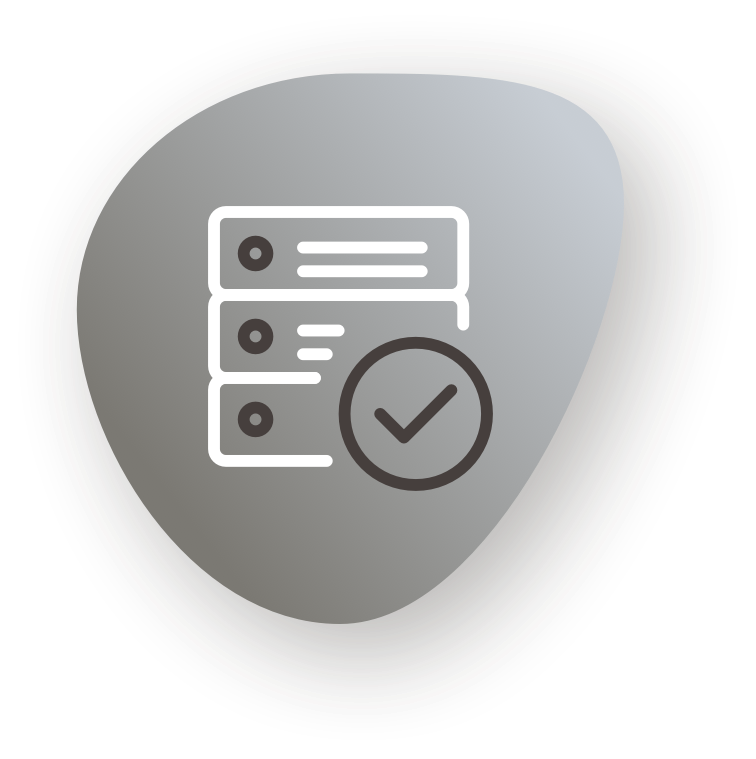Learn how to set goals for your customer service team so you can retain more, churn less, increase loyalty, and drive greater customer satisfaction.
The right goals for customer service can make or break your relationship with your customer. But, knowing that, regardless of the industry, every company has the need to meet customer expectations, can lead to ensuring you’re able to set customer service goals that matter.
Look at Amazon, for example. They operated at a loss for years in order to become one of the most valuable companies on the planet. And they were able to do so because they were laser focused on keeping the customer at the center of everything they did.
Start your day
with great
quality
content
The same holds true whether you’re a solopreneur, mom-and-pop business, startup, or member of the Fortune 500.
Without satisfied customers, you’ll be dead in the water.
Customers are the lifeblood of your organization. As a result, you’ll want to best determine how to:
- Bring in new customers
- Increase customer satisfaction
- Create customer loyalty
- Increase customer retention rate
But, where do you start?
High-quality customer service. Yep, having excellent customer service skills is a surefire way of achieving exactly what you want. There is no better marketing or retention tactic than giving your customers exactly what you said you would.
Only better.
But that’s easier said than done. How do you even accomplish this?
Goals.
Setting the correct goals for your customer service representatives has more impact on your outcomes than anything else. With the right goals in place, your team knows what they’re striving for. They have a north star.
I’m going to show you how to set goals for customer service that actually matter. We’re going to set (and achieve) the right customer support and customer service objectives for your company. Your SMART goals.
If this seems a little vague, don’t worry. We’ll dive into SMART goals for customer service representatives below.
What Is A SMART Goal In Customer Service?
Setting a general customer service goal like “improve net promoter score” is relatively easy. However, the goal needs to be easily understood and attainable.
This can be difficult. By having SMART goals, your customer service objectives are much more realistic. You give your customer service teams something better to focus on and you form the most significant part of your customer service strategy. Customer service team goals become:
- Specific
- Measurable
- Attainable
- Relevant
- Time-Bound
It’s worth diving into some practical examples of this and how you can achieve success.
Why You Need To Set Customer Service Goals
Before diving into some practical examples of a SMART goal for customer service, it’s worth digging into their importance of them.
A SMART goal offers multiple advantages to you and your customer service team, including:
- Manage Team Performance – Goals give you a benchmark for how your team performs, letting you better manage their performance. You’ll see if your customer service team is going above and beyond or falling short.
- Aligning Actions – Goals give everyone something specific to work toward. Since these will be the same goals for everyone, it aligns everyone’s efforts and makes your business run more smoothly.
- Improves Customer Service – Perhaps the most obvious benefit of customer service goals, you’ll see improvement in your team’s overall performance. You’ll have happier, more loyal customers that buying from you more often. I can’t stress enough the impact a loyal customer will have on the health of your company.
But, where do you even start?
Follow the example of those around you. That’s right, you don’t have to be a trailblazer.
“To steal ideas from one person is plagiarism; to steal from many is research.” – Anonymous
Borrow from the example set by those that have the resources to test and iterate. Obviously, you can set your own customer service goals, but there are multiple examples of goals that companies like Chik-Fil-A and Zappos have laid out and successfully executed.
We’ll break them down so they can show you how to set customer service goals that actually matter. By the end of this, all you’ll need to do is set the impact areas that you want to test.
5 Customer Service Goal Examples
1. Better Customer Advocacy
Have you built and nurtured relationships with your customers? Would they recommend your business to others? Would they advocate for you? If none of these are the case, then it’s one of the more important customer service goals you’ll need to strive for.
The better you can do this, the more likely it is you’ll bring in new customers. You can improve this in multiple ways, with improving customer satisfaction rates being one of the more notable.
Chik-Fil-A has led the fast food industry in customer advocacy for 8 years in a row. 8 years!!
Their commitment to customer satisfaction is shown in this viral video (more than 4M views) of a cashier chasing a car to ensure they received their correct meal.
I’m not saying you need to be a track star chasing down your customers just to say “have a good day”. But, you should go the extra mile to improve customer advocacy.
If I wanted to make make “Improve customer advocacy” a SMART goal, it may look something like:
- Improve Net Promoter Score (NPS) by 1 pt by converting 3% of our passive users (NPS: 30-70) to promoters (NPS: 70-100) within 3-months.
2. Boost Satisfaction Rates
How satisfied are your customers with your business? Do they walk away from every interaction feeling they received what they were looking for? If not, did they at least feel like they were heard and their concerns will be addressed? If you can answer yes to either of these, then your customer service agents are already doing well.
That doesn’t mean your customers are as satisfied as they could be, however.
Conduct customer surveys to get feedback about your business and figure out how happy they are with your business. If this is less than optimal, you can find ways to address the problems your customers have. These same customer surveys can help to find areas where you can improve.
The key is to actually use the customer feedback you receive.
WalletHub ranks Geico as the highest-rated insurance for customer satisfaction. This is a blend of customer service, affordability, and coverage, amongst other factors.
Maybe you’ll want to improve customer satisfaction through a loyalty discount or, rather than waiting for them to reach out to your support reps, you have your customer success team check in first.
You’ll have improved customer retention before you know it, so make sure your customer service department focuses on it.
If I wanted to make make “boosting satisfaction rates” a SMART goal, it may look something like:
- Improve New Customer Satisfaction (CSAT) by 20% within the first 3 weeks of signing up for our service. We’ll accomplish this by the end of H1.
3. Reduce Waiting Times
There are few things more frustrating than being asked to “hold for just a moment” for the third time when chatting with a rep. Speed is vital when you’re dealing with customers.
We live in a time where convenience is king and our attention spans are just over 8 seconds. By speeding up your response time and reducing waiting times, you make the customer experience much more pleasant.
Don’t just focus on getting a customer service agent to respond quickly, though. Make sure your employees are properly equipped to deal with any potential problems that may arise.
Zappos recognized that this is a vital part of the customer experience. They continue to lead the way with customer service reps that respond nearly instantly whether you’re communicating via chat, email, or phone.
Each of your customer service representative should make this an essential part of their customer appreciation strategy. Having a better response time will lead to a more consistent customer experience and have a significant impact on your customer churn rate.
If I wanted to make make “create a positive customer experience through reduced wait times” a SMART goal, it may look something like:
- Improve individual emails per hour (EPH) from 6.7 to 7.4 by the end of October.
4. Lower Cost-Per-Contact
Cost-per-contact is one of the significant key performance indicators to focus on when running your business. Aim to have this as low as possible so you can make a profit out of each sale your company makes. If you’re able to reduce the operating expenses associated with customer service, then your team can point to ways that they’re improving the overall health of the company.
To figure out your cost-per-contact, add up your company’s entire costs. From salaries to software, everything should be included in this. Divide the total by the number of customer contacts you can handle.
Split this into different categories. For example, evaluating chat vs. email vs. in-person support vs. phone will help you to determine the most cost-effective strategies. Once you understand this, you’ll be able to implement the right touchpoints based on the tier of the client, effectively lowering your cost-per-contact.
If I wanted to make make “lower the company cost-per-contact” a SMART goal, it may look something like:
- Integrate chatbots and move 100% of our free plan users to an automated responder that links back to the correct knowledge base articles for their needs by the end of the year.
5. Increase Loyalty
Customer loyalty is a vital part of a company’s success and customer service can have as much of an impact on it as the quality of the product.
We’ve all heard that it costs more to acquire new customers than to retain existing customers. Well, we’re talking 5X more. This is significant and it’s the reason that Amazon continues to sit at the throne of customer loyalty. A strong customer loyalty strategy encourages customers to buy from you again and again, turning them into repeat and more profitable customers.
Take a customer-centric approach to encourage them to keep coming back. You can achieve this by having your customer service team offer tremendous value to your customers. The more they give, the more they get.
Take the time to show you appreciate them. There are a number of ways to do this. If they buy from you online, for example, take the time to send them a follow-up email thanking them for the purchase. You can automate this to reduce the amount of time it takes while still seeing the benefits.
You’ll end up with a larger, more loyal customer base over it.
If I wanted to make make “increase customer loyalty” a SMART goal, it may look something like:
- Increase return purchases by 15% within 60 days of original purchase. We will accomplish this in the next 6-months.
How To Set Your Own Customer Service Goals
The above are meant as guidelines. However, evaluate your team and your customers to determine how best to come up with customer service goals that fit your needs. Build a strategy by following these great examples of customer service goals.
SMART customer service goals are an effective and practical way of improving the customer experience.
Follow the strategy letter by letter. Empower your team by involving them in the process. Be specific with what you want to achieve.
- Make the goals achievable (but, not easy).
- Make each goal time-bound.
- Make sure each deadline is realistic for your overall goal and that your customer support team doesn’t feel disheartened or defeated before beginning.
Focus on customer service goals and improve them gradually. With the entire team working on them, good customer service is well within your reach.
Summing Up
Improving customer service is critical for any business to succeed and grow. Your customers are the lifeblood of your company. By setting SMART goals for customer service, you can develop a practical plan to improve your overall customer satisfaction rates.
Whether it’s boosting satisfaction rates, lowering cost-per-contact, reducing wait times, or anything in-between, focusing on the right goals makes sure your team is aligned and working toward solutions that will drive the results your company needs.









